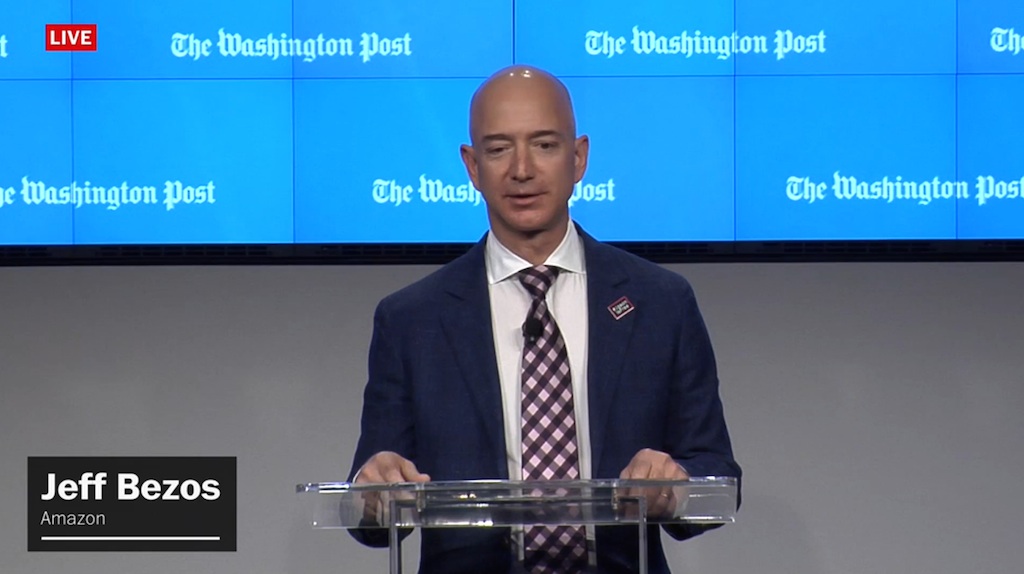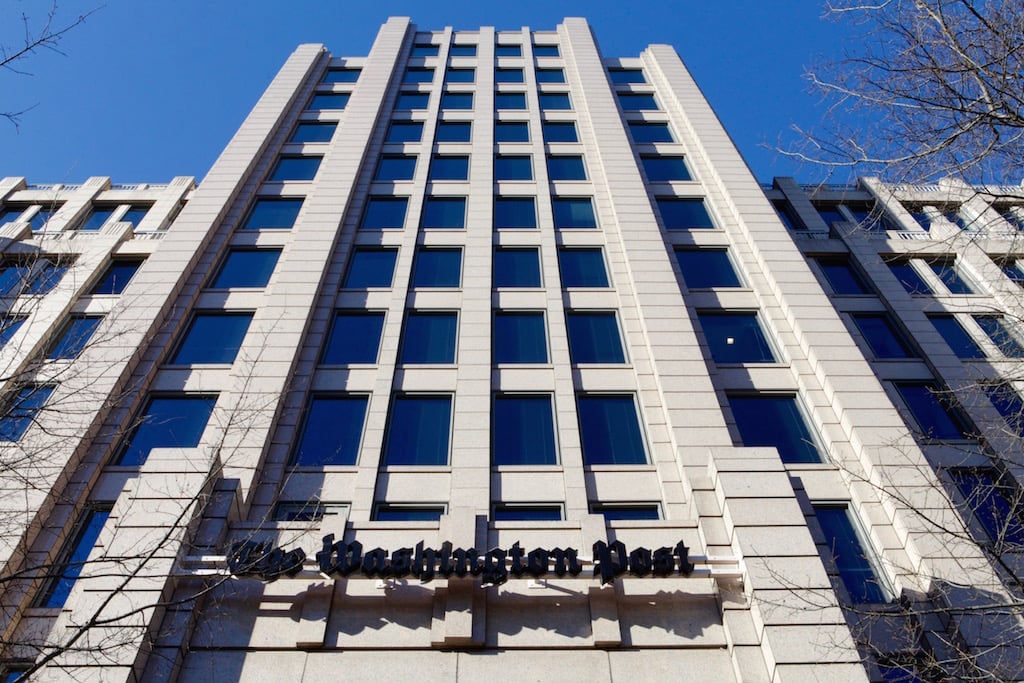In 2012 the Washington Post Co. had newspaper publishing revenue of $581.7 million, a 7 percent drop from the year before. At the time, the Post Company owned the Washington Post, the Everett, Washington, Herald, Maryland’s Gazette newspapers, Slate, the Root, and Foreign Policy, among others. Revenue from online properties, primarily the Post website and Slate, accounted for $110.6 million of that revenue.
Jeff Bezos bought the Post in 2013 and made it a private company, so it no longer releases earnings reports. The Post Co. sold the Herald in 2013; Slate, the Root, and Foreign Policy did not convey with the Post sale; and Bezos shed the Gazette papers last year. In a terrific story for New York magazine published Tuesday, Gabriel Sherman reports his sources say the Post now makes $60 million from digital revenue, “far below what the newsroom needs to function.” Total revenue, Sherman says, is “probably closer to $350 million.” One “Post veteran,” he reports, “told me that Bezos said in a meeting that the company’s annual budget, currently around $500 million, will have to be cut by 50 percent over the next three years.”
Who knows about these figures. It seems to me that a 46 percent drop in digital revenue might dampen the gusto with which the Post has pursued a bigger national and international, mostly digital audience, an initiative Sherman chronicles well. The larger point is, as Sherman puts it, “the paper is succeeding in large part because of a very old-media tradition: the support of a wealthy owner.” Bezos’s very deep pockets have let the Post hire many journalists, engineers, and move to a snazzy new building.
None of this signals an imminent Chris Hughes-style midnight flight, or anything approaching the unending misery of the paper’s last few years as part of a publicly traded company, when staff cuts and buyouts were almost all you heard about.
And of all the goodies Bezos has showered the Post newsroom, perhaps the greatest is silence. As a private company, the Post doesn’t have to share its financial results with anyone. (Believe me, I’ve tried to find out!) It told Sherman there’s no 50 percent budget cut in the mail, but that’s about it. As I understand it, very few people know how much the Post is making, and it’s hardly in the interests of any of them to talk to a reporter about it, especially with a boss as ironically press-agnostic as Bezos.
Here’s what we do know: Publishing a print newspaper continues to be a brutal business: “The long term [newspaper] trend is to zero,” CNBC commenter Kevin O’Leary said about the star-crossed proposed purchase of Tribune Publishing by McLean, Virginia-based Gannett. Last September the Post‘s average Sunday circulation was 571,785 and average Monday-Friday circulation was 386,285, a drop of 11 percent and 32 percent, respectively, over the same figures in 2013. The 2012 earnings report reported a 14 percent decline in print advertising revenue from the year before, and I imagine if the Post had been the only newspaper in the industry to turn that trend around, we may have heard about it.
The New York Times is betting heavily on revenue from readers to soothe that decline, and the Post is working toward that goal, too. It’s also looking at more sources of revenue: Sources told Sherman the Post‘s initiative to turn Amazon Prime members into digital subscribers has been its “biggest digital success story by far.” It’s building a business selling its content management system to other publications. It’s working on ad tech.
And we’ll hear about it if it works. But probably not before.



















